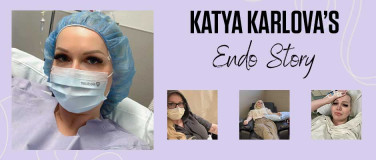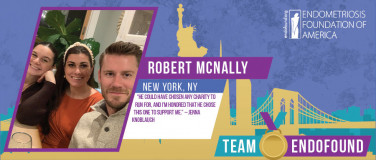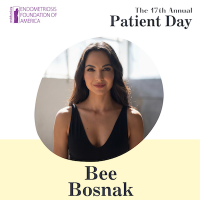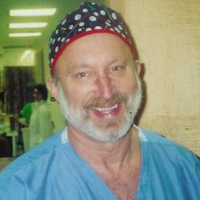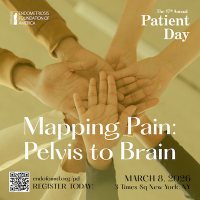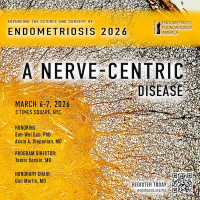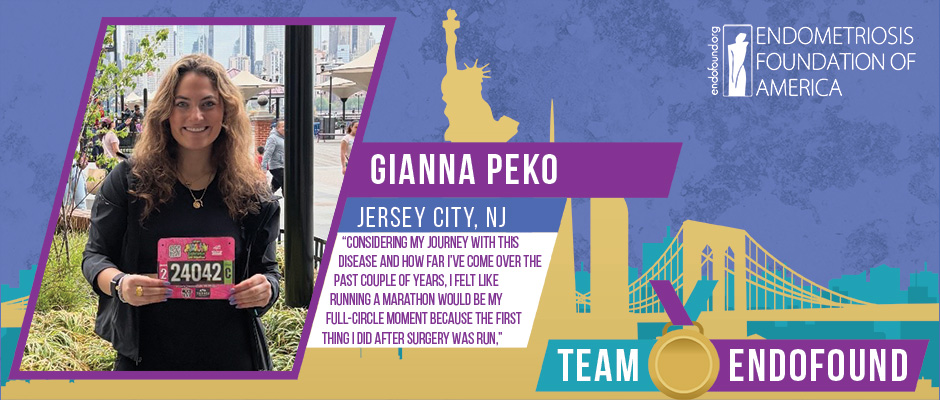
Gianna Peko had a blood transfusion when she was 13 after losing a significant amount of blood during her menstrual period. It was a sign of what her life would be like for the next decade.
“When I would get my period, it was horrible—middle school, high school, and college. I carried Advil in my backpack starting when I was 14,” Peko said. She didn’t miss much school because doctors conditioned her to believe that what she felt was part of becoming a woman. “Even though I was in that intense pain, my mindset was that I had to deal with it and fight through it. I had to find a way to make life work while dealing with these intense symptoms.”
Peko, 26, is an investment banker living in Jersey City, New Jersey. She was selected this past spring as one of the 50 runners for EndoFound’s Team EndoStrong in the November 2 New York City Marathon. This year is EndoFound’s eleventh as a charity partner with the marathon. The team goal is to raise $300,000 for the foundation’s advocacy, education, and research programs. This will be Peko’s first full marathon.
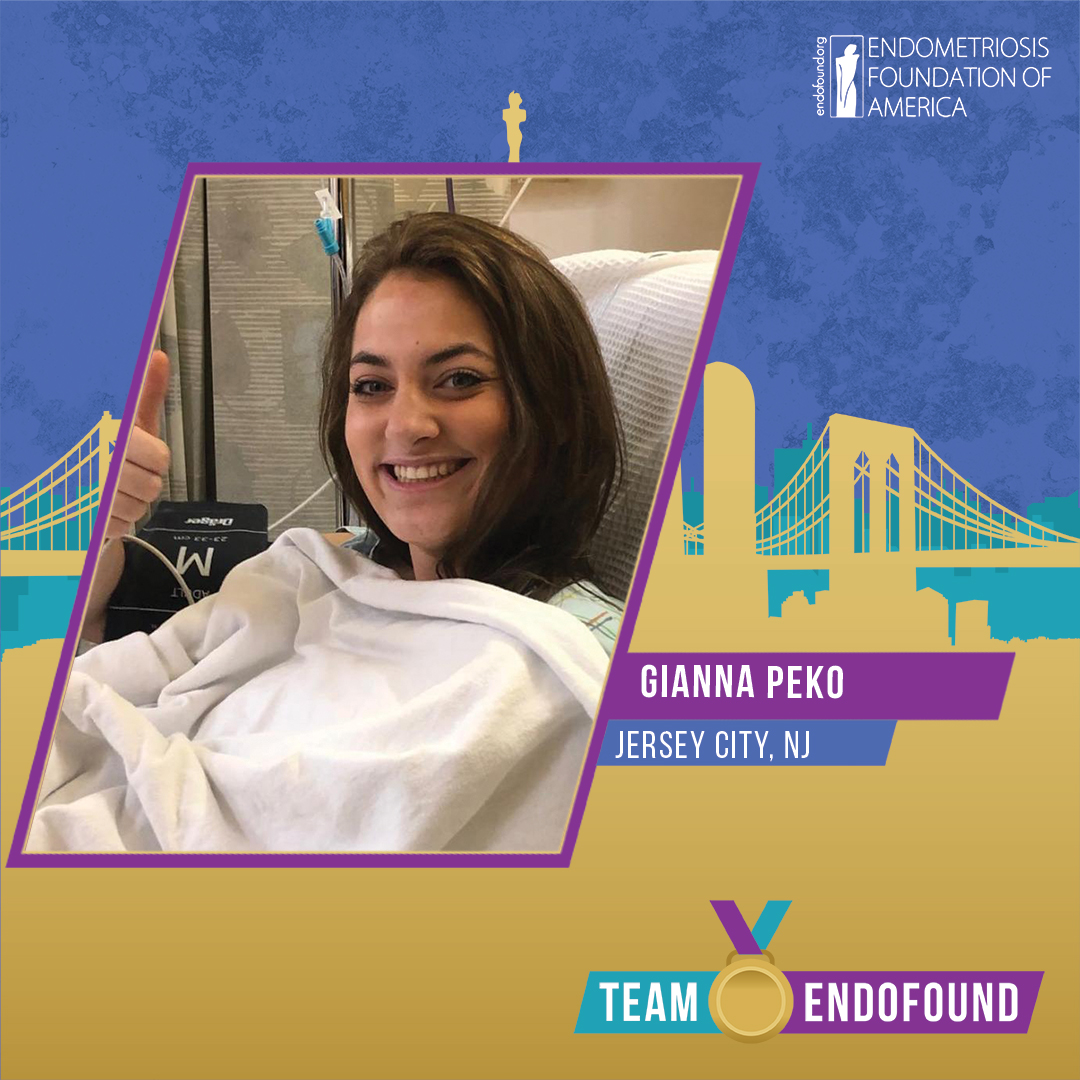
Click Here To Support Gianna Peko's Marathon Fundraiser
“Considering my journey with this disease and how far I’ve come over the past couple of years, I felt like running a marathon would be my full-circle moment because the first thing I did after surgery was run,” Peko said. “And I’m doing it for something I’m passionate about.”
Peko said she was continually “written off” by doctors in middle school and high school. She was more assertive about her health when she started college, but still struggled to be heard.
“My freshman year of college was when I felt that I really needed to figure out what was wrong,” Peko said. “The pain was intense. I had fatigue so extreme that I couldn’t leave my bed. I had severe migraines and GI issues. I went to tons of doctors, from GI doctors who told me I had IBS, to regular doctors and gynecologists who said it was just bad periods that I had to deal with.”
One doctor put her on a progesterone-only birth control pill, which gave her some relief for the remainder of college. But when she decided she wanted to stop taking the pill, the symptoms became unbearable—and they were affecting more than just her physical well-being.
“I couldn’t do my day-to-day activities. I went from being a very active person—playing soccer, running, and lifting—to being bed-bound unless it was to get to my office for work,” Peko said. “At this point, I’d given up. I told myself that nobody was ever going to know what was wrong with me or be able to help me. I was a medical mystery. It had now become more of a mental battle than a physical one.”
Peko said she’d heard over the years about polycystic ovary syndrome (PCOS) and endometriosis, but no doctor wanted to diagnose her because they felt she was too young. While Peko was in New York, her mother researched both, which led them to Dr. Tamer Seckin, founder of the Seckin Endometriosis Center and co-founder of EndoFound.
“I met with him, and he told me I’d be a good candidate for surgery,” Peko said. “As everything goes with this disease, when you find the right doctors and the right people to advocate for you, as my mom did for me, you really do get proper care.”
Peko had endometriosis excision surgery in June 2022. She was also diagnosed with PCOS.
“The surgery changed my life. I’ve felt so much better the last three years,” Peko said. “I’ve heard it can take some time after surgery to feel better again, but I felt like a different person immediately. Even after surgery, there will be times when the symptoms will flare; however, I’ve been working to make all of the necessary lifestyle adjustments to better manage the disease.”
She said the diagnosis was the best thing that could have happened to her, not just physically, but mentally.
“The relief I felt to have a doctor validate my struggles and give me an answer for why I was feeling the way I was is all I had been searching for, for years. I finally felt there was a path forward to better understanding my body and learning how to take care of myself.”
Peko has run a couple of half-marathons, including one in 2022, just a few months after her surgery. Her goal for her first full marathon is to finish in under four hours. Her greater hope is that by sharing her story and raising awareness about endometriosis by running for Team EndoStrong, other women with the disease will receive the necessary care sooner rather than later.
“My biggest advice is that even when things get hard, constantly continue to advocate for yourself to your doctors,” Peko said. “You know your body better than anyone else. Don’t let anyone diminish how you’re feeling. You can always figure out what’s wrong if you stand up for yourself and have the proper support around you.”
To support Gianna Peko in the New York City Marathon with a donation, visit https://give.endofound.org/fundraiser/6260758.



